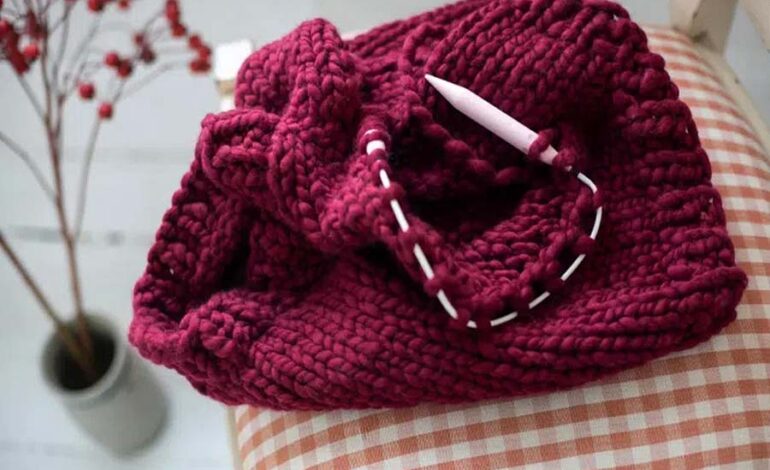Exploring Sustainable and Ethical Knitting Yarns

Knitting and crocheting enthusiasts understand the joy of creating handmade gifts, especially during the holiday season. However, the choice of yarn plays a crucial role not only in the outcome of the project but also in its environmental and ethical impact. To guide fellow crafters in selecting the best yarn for their next project, we’ve curated a list of sustainable and ethical yarn brands, prioritizing materials that are safe, durable, and responsibly sourced.
Understanding Sustainable Yarn
Before delving into our list of favorite yarn brands, let’s establish some criteria for identifying sustainable yarn:
Natural Materials
Synthetic fibers like acrylic and polyester, derived from petroleum, are harmful to both the environment and human health. Opt for yarns made from natural fibers such as organic cotton, linen, silk, merino wool, alpaca wool, hemp, mohair, or Tencel. These materials are biodegradable, breathable, and provide superior comfort.
Recycled Synthetics
Some brands incorporate recycled polyester or unraveled yarn from discarded textiles, reducing waste and extending the lifespan of materials. While recycled synthetics should be used cautiously due to microfiber pollution, they offer a sustainable alternative to virgin materials.
Non-Toxic
Avoid yarns dyed with synthetic dyes, which can contain harmful chemicals harmful to textile workers and consumers. Look for yarns dyed with natural or certified-safe dyes, sourced from regions with stringent regulations. Additionally, opt for yarns free from stain-resistant, anti-microbial, and moisture-wicking finishes, which often involve toxic chemistry.
Supply Chain Transparency
Choose brands that prioritize transparency in their supply chain, ensuring fair wages, safe working conditions, and ethical treatment of animals. Small artisanal brands often offer yarns with shorter supply chains, providing greater accountability and traceability.
High Quality
Select yarns known for their quality and durability, verified through feedback from experienced crafters and industry experts.
Our Favorite Sustainable Yarn Companies
Darn Good Yarn: Offering recycled silk yarns handcrafted by artisans from India and Nepal, Darn Good Yarn also provides wool, linen, hemp, and banana-based fibers. With a commitment to ethical sourcing and fair wages, this brand offers a diverse range of yarn options in vibrant colors.
Natural Recycled Yarn: Led by an independent artist, this Virginia-based brand transforms secondhand knitwear into upcycled yarns, preserving the uniqueness of each garment. Specializing in natural fibers like cashmere, alpaca, and linen, Natural Recycled Yarn promotes sustainability through creative recycling.
Loopy Mango: Known for its chunky, colorful yarns made from cotton, mohair, and merino wool, Loopy Mango offers beginner-friendly options sourced and dyed in Italy and the US. While information on its supply chain is limited, its selection of sustainable yarns and DIY kits appeals to crafters of all levels.
Wool and the Gang: Offering bold, thick yarns designed for knitting enthusiasts, Wool and the Gang prioritizes non-mulesing wool and recycled materials like denim and cotton. While some yarns may contain synthetic blends, this brand provides a wide variety of colors and textures, accompanied by tools, kits, and tutorials.
We Are Knitters: With bright yarns sourced from Peru, We Are Knitters emphasizes 100% natural fibers like sheep wool, baby alpaca, and merino wool. Certified by RCS, GOTS, Fair Trade, and Oeko-Tex, this brand offers a diverse range of colors and compositions, including recycled blends and FSC-certified needles.
As crafting enthusiasts, it’s essential to prioritize sustainability and ethics in our choice of materials. By supporting brands committed to environmental responsibility and ethical practices, we can create beautiful handmade gifts while minimizing our ecological footprint.









